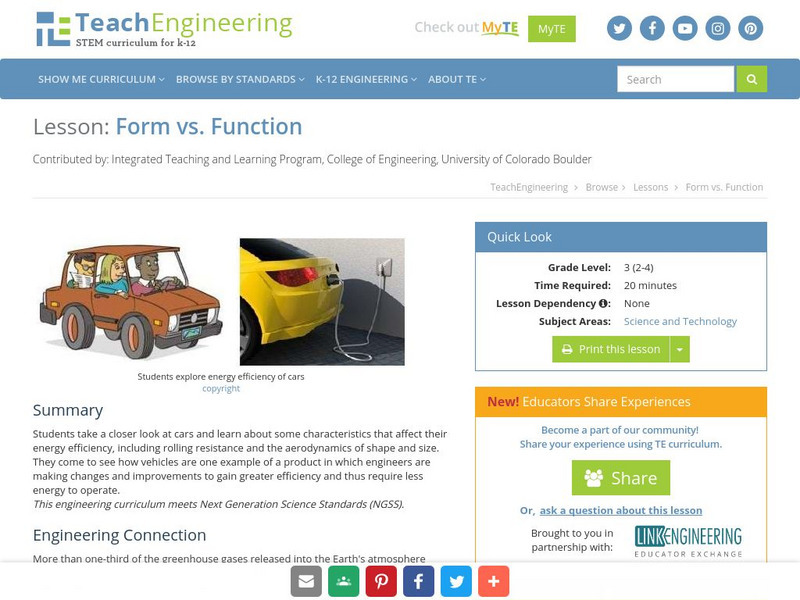Hi, what do you want to do?
Smithsonian Institution
National Air and Space Museum: Wright Brothers: Interactive Experiments
Three interactives in an online exhibition about the Wright Brothers. The first is an engineering activity on the forces of flight, and is accompanied by a lesson plan for Grades 6-8. The second is a gallery of original artifacts related...
TeachEngineering
Teach Engineering: Up, Up and Away! Airplanes
The airplanes unit begins with a lesson on how airplanes create lift, which involves a discussion of air pressure and how wings use Bernoulli's Principle to change air pressure. Following the lessons on lift, students explore the other...
NASA
Nasa: Beginner's Guide to Aerodynamics
Includes exhaustive information and a wealth of activities pertaining to aerodynamics and the physics of flight.
PBS
Pbs: Wgbh: Nova: The Colditz Glider: Airfoil Aerodynamics
Examine what science lies behind keeping flying machines in the air. The wings angles, shape and placement, speed and what else must be considered in the development of device?
TeachEngineering
Teach Engineering: Physics of the Flying T Shirt
Students are introduced to the physics concepts of air resistance and launch angle as they apply to catapults. This includes the basic concepts of position, velocity and acceleration and their relationships to one another. They use...
TeachEngineering
Teach Engineering: Form vs. Function
Students take a closer look at cars and learn about some characteristics that affect their energy efficiency, including rolling resistance and the aerodynamics of shape and size. They come to see how vehicles are one example of a product...
University of Minnesota
The Physics of Flight: Bernoulli's Principle
Discusses air flow around the wing of a plane and its effect upon the lift and drag forces. Focuses on the application of Bernoulli's principle to wing design and the subsequent airfoil shapes.











